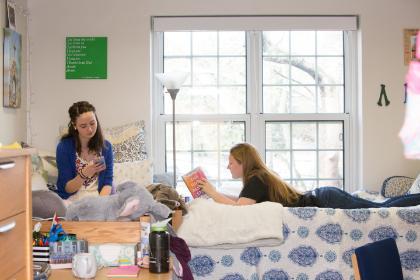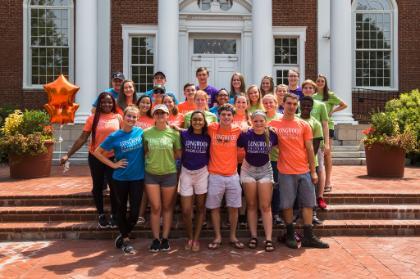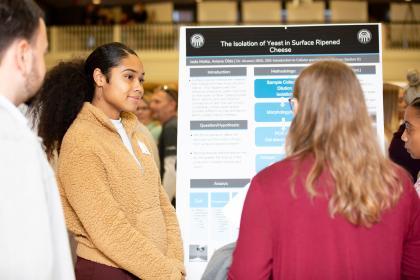
What It Means To You
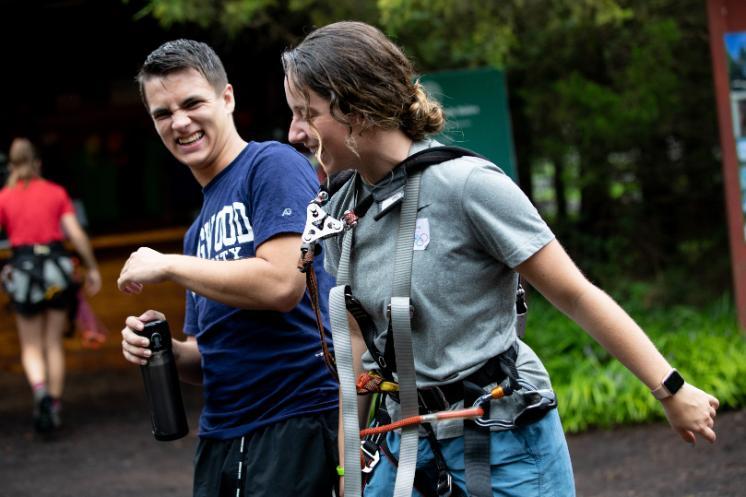
With dedicated Honors housing, lounges & study space there are daily opportunities to cultivate intellectual growth, nurture character and inspire leadership development.
The result—the enthusiastic discovery of individualized citizen leaders within a community of approximately 400 students.
-
505Total CHC Students
-
2202022 Freshman Class
Community
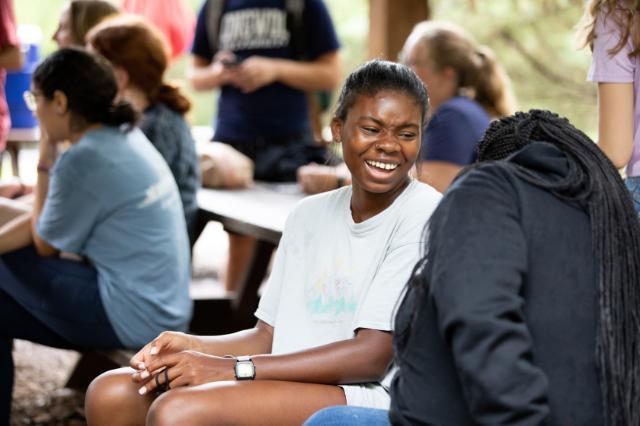
Wheeler Residence Hall
The majority of incoming CHC students elect to live in Wheeler Residence Hall—a historic and beautifully renovated hall, built in 1966—that is also home to a high-tech classroom, which brings honors classes and co-curricular activities right into the heart of our students’ everyday experience.
-
2006Wheeler Hall is Renovated
-
2021Wheeler Hall is Updated
"It's not more work, it's different work"
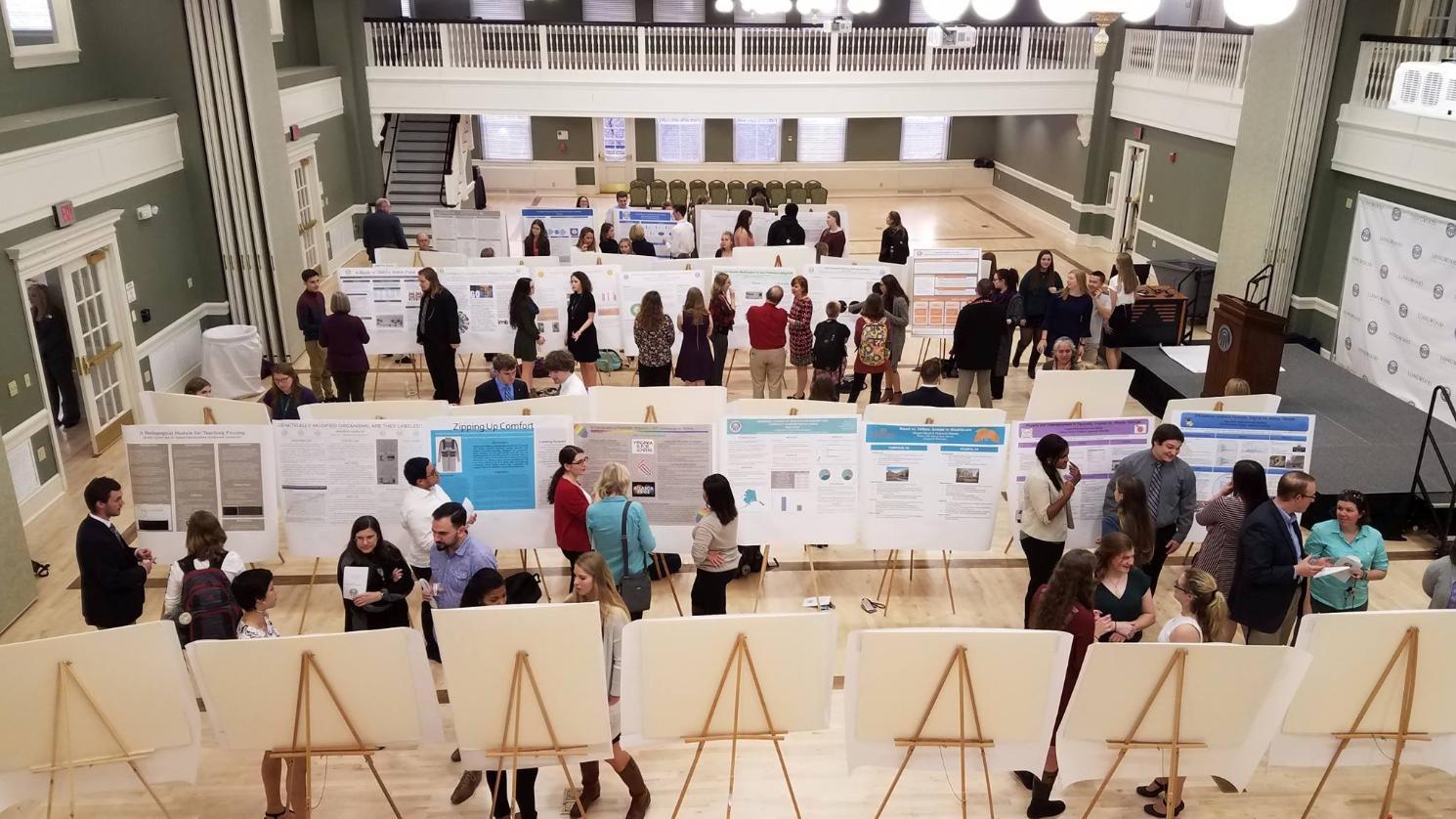
The motivation for attending a college or university can vary from student to student. Some want to expand their minds or explore a lesser-known branch of a topic. A transcending common goal for many though is a post-graduate life with gainful employment. At the Cormier Honors College, we prioritize the skills and preparation tantamount to securing professional employment.
Students in the Cormier Honors College are encouraged to utilize any opportunity that helps grow the confidence and breadth of their professional experience including;
- Construct a meaningful reflective essay
- Connect students with professional opportunities
- Foster and encourage student leadership
- Support undergraduate student research
These are just a sampling of the ways in which Cormier Honors College seeks to advance the career prospects of its students.
Conferences
Presenting at a research conference as an undergraduate student is an exciting introduction to professional networking in a specific field. In addition, it can create a deeper sense of intellectual confidence, establish an understanding of professional decorum, and generates a moment that can be discussed on a resume or CV.
Honors students are frequently invited to present research findings at conferences around the country.
- Southern Regional Honors Conference
- National Collegiate Honors Conference
- Virginia Collegiate Honors Conference
- National Conference on Undergraduate Research
The Cormier Honors College expects to be able to fund travel, meals and lodging for students whose work is accepted for upcoming honors conferences. Don't delay - abstracts are relatively short, but they can't be written, reviewed and submitted at the last minute.
Student Research
One of the standout features of the Honors College, and Longwood as a whole, is the emphasis placed on engaging undergraduate students in research. Longwood convenes two undergraduate research symposiums during the fall and spring terms. Participating students gain skills through observing strict deadlines, practicing a professional etiquette, and experiencing a low-stakes, but high pressure presentation environment that will likely be replicated in many occupational fields.
An option for students further into the degree seeking process can choose to utilize Senior Thesis Program in order to gain vital experience. Participating students receive credit for two upper-level honors courses; while the two-semester, six credit-hour, student initiated, research project enhances not only a student’s grasp of scientific writing but also allows student to pursue topics of interest at a greater depth. Outcomes of the successful completion of the Senior Thesis Program include:
- A deeper understanding in a subject area of special interest
- Improvements in academic research and writing
- Presentation of research and paper
- Invitation to submit research paper to the Library's permanent collection
- Recognition at graduation for exceptional academic achievement
Find more information about the Senior Thesis Program
PRISM
Students have the chance to apply for a summer research program aimed at undergraduates with focuses in STEM (science, technology, engineering, mathematics) fields. The program, called PRISM, utilizes close faculty mentoring, practical training, and one-on-one faculty collaboration to create tangible research outcomes. Taking place over an intense 8 week period of the summer students receive a $3500 stipend and free room and board if chosen for participation. For much more in depth information visit the PRISM website.
Below are some examples of recent Cormier Honors student PRISM program research contributions:
Project Title: The maximum surface area polytope with 5 vertices inscribed in the sphere S^2
Contributors: Dr. Steven Hoehner, Jessica Donahue & Ben Li
Abstract: We determine the optimal placement of five points on the unit sphere S^2 so that the surface area of the convex hull of the points is maximized. We show that the optimal polytope is a triangular bipyramid with two points placed at the north and south poles and the other three points forming an equilateral triangle inscribed in the equator.
Project Title: Population dynamics and trends of wintering waterfowl of Mid-Atlantic region of the USA
Contributors: Dr. Sujan Henkanathegadara, Abigail Harris & Thomas Hoke
Summary: We propose to use Christmas Bird Count (CBC) data to evaluate population dynamics of wintering waterfowl in the coastal mid-Atlantic region (Delaware, Maryland, Virginia, North Carolina). We plan to gather data from 68 CBC count circles covering the time period of 1950-2018 for 35 waterfowl species. The results of their work may help to better understand the status of waterfowl in the mid-Atlantic region, and provide long- term population dynamics information for conservation practitioners and managers interested on waterfowl.
Project Title: Effect of Water Quality on Fish Population Dynamics in Briery Creek and Sandy River Reservoirs, Farmville, VA
Contributors: Dr. Dina Leech, Kirsten Bauer & Davice Jones
Summary & Overview: With the move online, we shifted from a field- and laboratory-based project to a data analysis project using publicly available data collected by several government agencies. Over the weeks we have cleaned, organized, and merged these large datasets to investigate potential trends and significant differences in the fish populations of Briery Creek and Sandy River Reservoirs. Additionally, we conducted conference calls over Zoom with state and federal scientists, such as fisheries biologists at the Virginia Department of Game and Inland Fisheries (now the Virginia Department of Wildlife Resources) and a biologist working with the Environmental Protection Agency (EPA).
Other Resources
Longwood's Career Services
Wondering what kind of job you could have given a particular major? View an at-a-glance list of potential occupations. (pdf)

